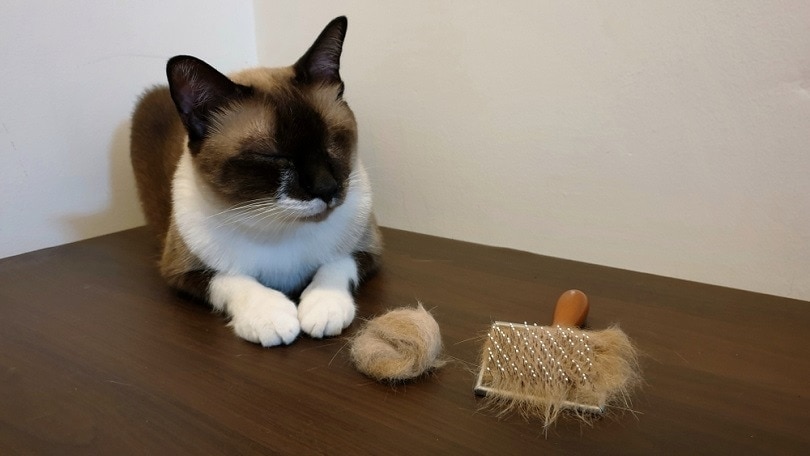Neutered vs Unneutered Male Cat: Pictures, Vet-Approved Differences & Identification
Updated on
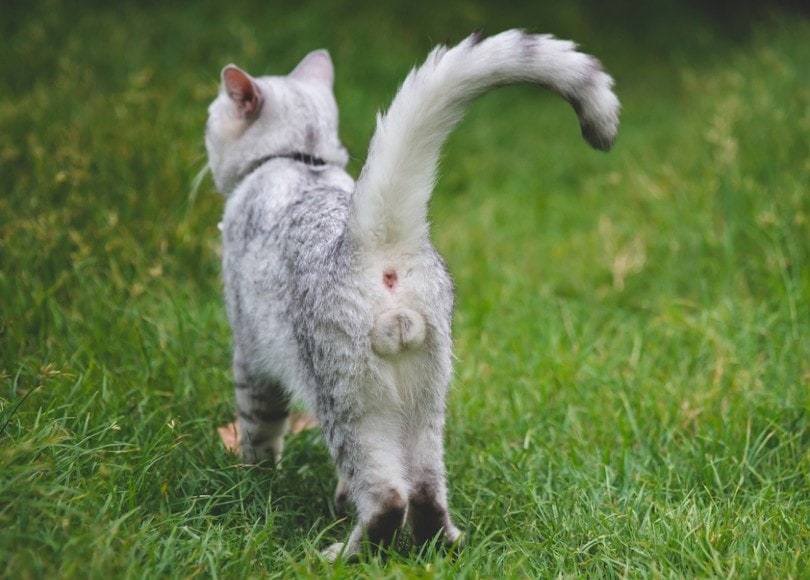
Click to Skip Ahead
In this article, we’ll cover the physical and behavioral differences between neutered and unneutered cats and how to identify one versus the other. We’ll also talk about the medical and practical reasons why you might want to get your cat neutered and which cat makes a better pet.
At a Glance
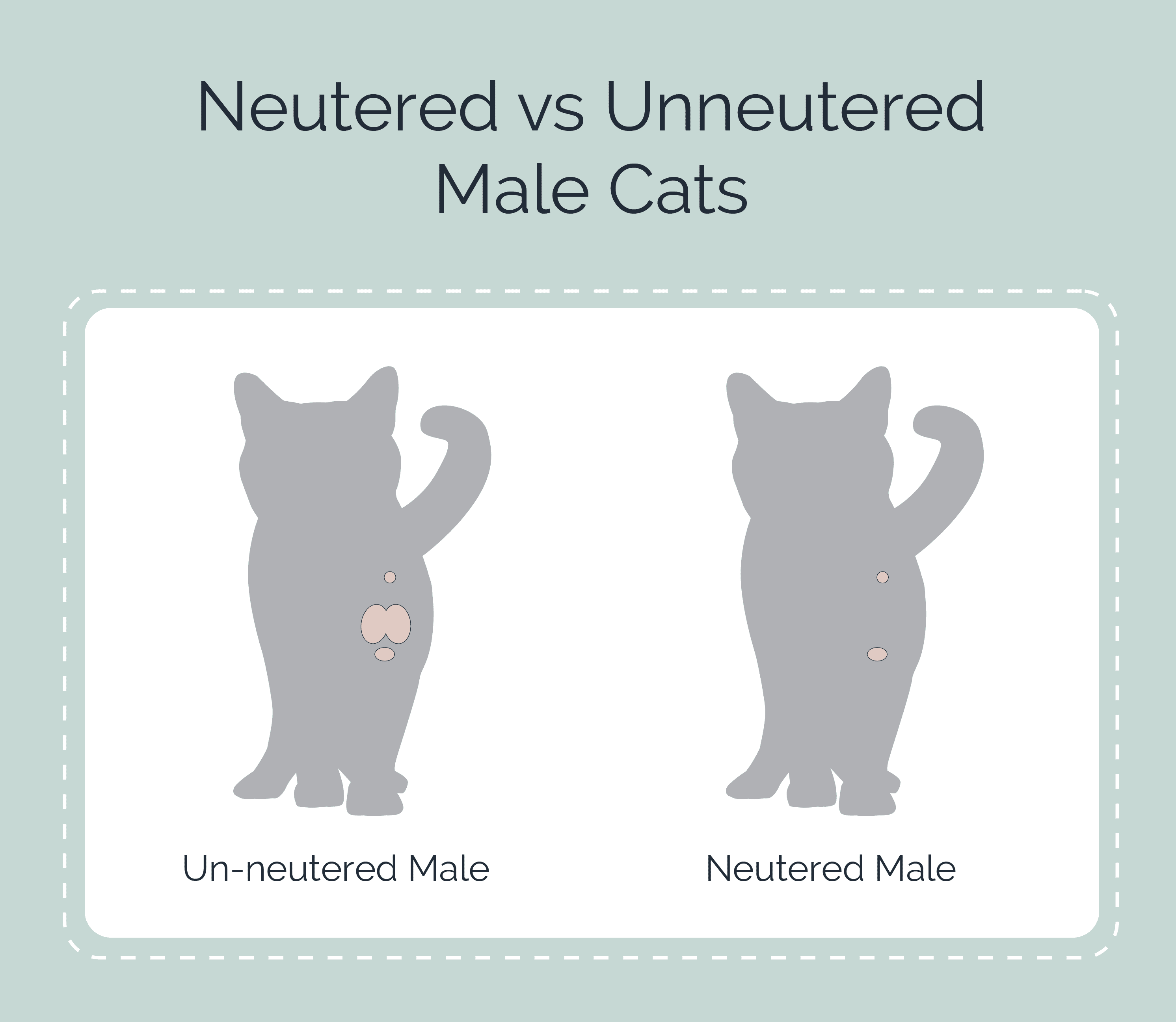
Overview of Unneutered Male Cats
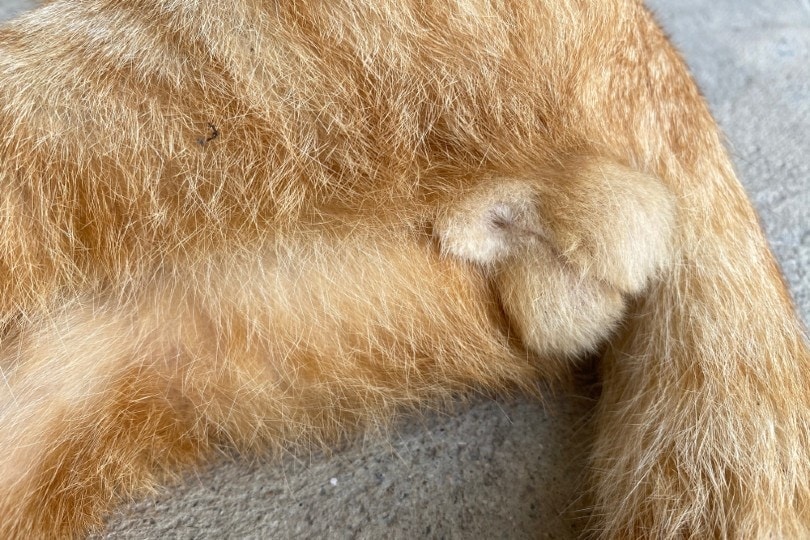
Physical Characteristics
First, the most obvious physical characteristic of an unneutered male cat is the presence of testicles. Most male cats have two distinct testicles located under their tail, below their anus. Rarely, male cats may be cryptorchid, meaning one or both of their testicles are stuck inside their abdomen and not visible.
The testicles—no matter where they’re located—produce the sexual hormone, testosterone. The presence of testosterone is responsible for the physical differences between neutered and unneutered male cats.
Unneutered males are generally bigger and more muscular than neutered ones. They have thicker necks and wider, thicker heads and faces. Unneutered males also develop large scent glands near their tails that produce a specific “tomcat” smell, unmistakable once you’re familiar with it.
Related to those same scent glands, the urine of an unneutered male cat has a strong, unpleasant scent. For better or worse, you’ll have plenty of exposure to this odor thanks to one of the most common behavioral characteristics of unneutered males—territory marking.
Behavioral Characteristics
Unneutered male cats are extremely territorial and constantly feel the need to mark that territory. Unfortunately, spraying, or urine marking, is their preferred method to do so. While all cats are capable of spraying, unneutered male cats are by far the most likely to perform this unpleasant (to us) behavior.
Unneutered male cats also have a strong urge to roam in search of mates. Outdoors, unneutered males may range far from home in search of females. Indoors, males may be restless and vocal because they can’t wander as their instincts lead them.
Unneutered males are also aggressive toward each other, especially when they cross paths outdoors. Fighting and injuries are common. Unneutered males pay less attention to grooming than other cats, giving them an overall more unkempt appearance.
- They are more muscular
- They have a thick neck, head, and face
- Testicles present
- They have a strong odor and smelly urine
- They spray more frequently
- Possess a strong instinct to roam in search of mates
- More aggressive to other males
- Might have an unkempt appearance
Overview of Neutered Male Cats

Physical Characteristics
The differences in physical appearance between neutered and unneutered males depend somewhat on when the male cat was neutered. Cats who are neutered before reaching sexual maturity never develop hormone-related physical changes like big heads and smelly tail glands. They’re slimmer and less muscular overall.
Males who are neutered when they’re older, say a stray cat who was adopted as an adult, may retain some of those physical traits, although they will eventually lose most of them. Early neutered males never develop the large scent glands near the tail and don’t have the tomcat smell. Their urine is also much less strong smelling.
Neutered male cats don’t have visible testicles and tend to be cleaner overall.
Behavioral Characteristics
Without testosterone driving their desire to roam and reproduce, neutered male cats are content to remain at home. A small percentage may still spray but most will give up this behavior along with most of their territorial nature.
Neutered males are less aggressive towards other males, although fights may still occur, especially when the male was neutered later in life. Because they spend less time fighting, neutered males are less likely to experience injuries or be exposed to infectious diseases.
Once neutered, male cats can’t reproduce and usually show no interest in females. Some “experienced” males may still pursue female company even after their surgery.
Neutered males take better care of themselves, grooming more frequently and keeping their coats tidy. This plus their decreased odor makes neutered males much more pleasant to live with.
- They are less muscular, with slimmer heads and faces
- Possess less odor, particularly in the urine
- They lack testicles
- They’re less likely to spray
- Less interested in roaming
- They keep themselves cleaner
- Display less aggression towards other males
To Neuter or Not To Neuter?
Now that you know the differences between neutered and unneutered male cats, you might have already made up your mind about whether you want to have the procedure done on your cat. But if not, keep reading to learn some pros and cons of getting your male cat neutered.
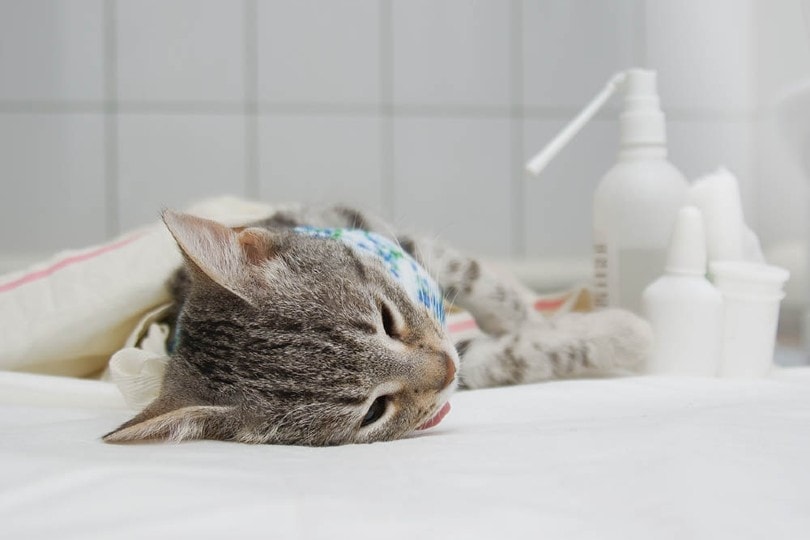
Why Not To Neuter Your Cat
The number one reason why you may choose to leave your cat unneutered is that you plan to breed from him. If you do want to breed cats, make sure you do so responsibly so as not to contribute to the already extensive population of homeless cats. This means keeping your unneutered male confined and unable to roam except for if you plan to breed.
Some people choose not to neuter their cats over safety concerns about the surgical procedure or worry that their cat’s behavior will change for the worse. Your veterinarian is a good resource to help you talk through these concerns.
Medical Reasons To Neuter Your Cat
Neutering your male cat reduces the risk that he will develop testicular cancer and prostate problems. Because neutered cats are less likely to roam and fight, they’re also less likely to be put at risk from this behavior. Unneutered male cats are much more likely to be injured in fights, hit by cars, attacked by larger animals, or exposed to viruses like FIV or Feline Leukemia.
Practical Reasons To Neuter Your Cat
Neutered cats are, to be honest, much more pleasant to live with than unneutered males. They are less likely to spray and if they do, their urine smells much less strongly. Neutered cats will be content to live happily indoors without feeling the urge to roam.
When neutered, male cats tend to be much cleaner and smell better. They’re also more likely to get along with other cats, especially other males. If your neutered male does happen to escape the house, you won’t have to worry that he’ll create a kitten boom in the immediate vicinity, adding to the already high number of unwanted cats in this country.
Overall, neutered male cats tend to make better pets than unneutered males.

Conclusion
While a cat’s personality and temperament may not be impacted by whether or not he is neutered, his desirability as a pet and overall health and well-being certainly will be. Now that you know the differences between neutered and unneutered male cats, you should be well-prepared to make an informed decision on what’s best for you and your cat.
Featured Image Credit: ANURAK-PONGPATIMET, Shutterstock






